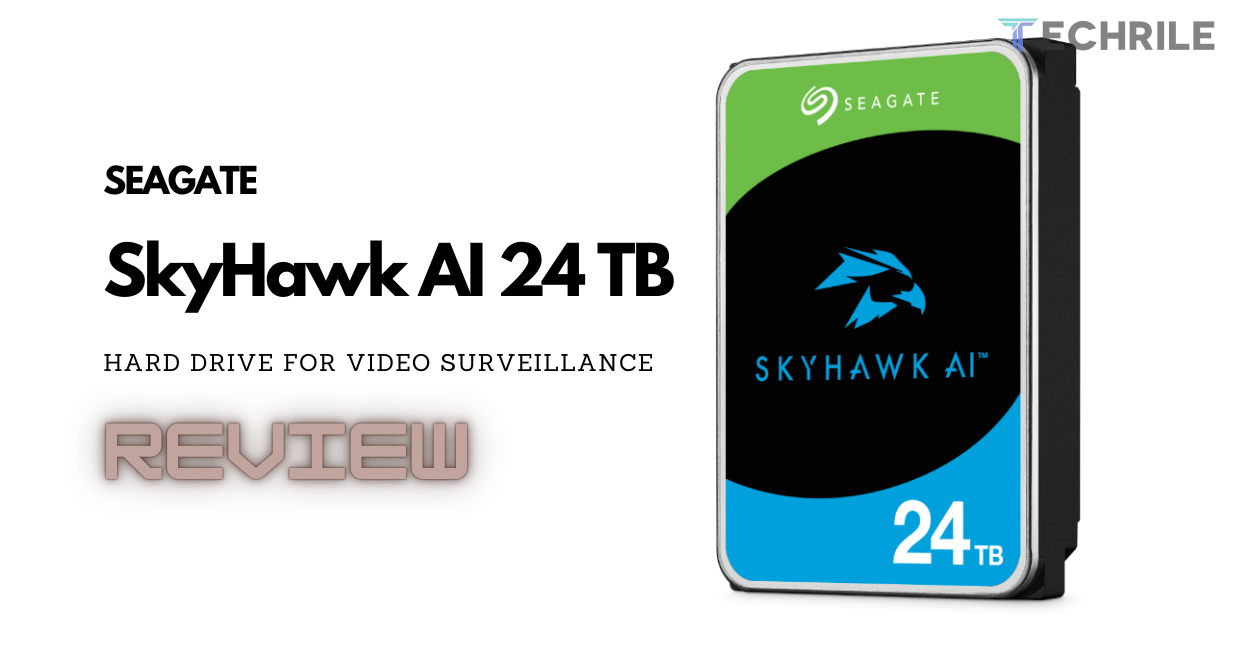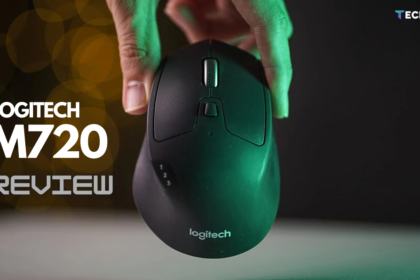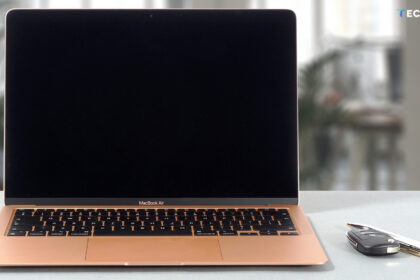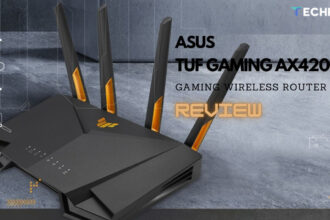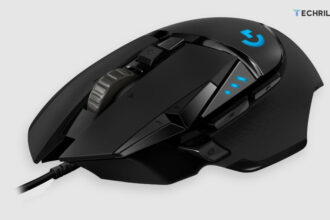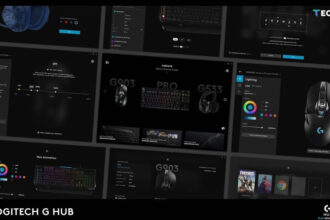At the end of last year, Seagate Technology Holdings, a world leader in data storage solutions, announced the release of the new SkyHawk AI 24 TB hard drive (HDD), designed specifically for video surveillance and image storage. This new Seagate model follows the Seagate Exos X24 24 TB using conventional magnetic recording (CRM) technology.
The new SkyHawk AI 24 TB drive is intended to efficiently handle various AI-powered applications. It can also help reduce the so-called TCO (total cost of ownership, meaning the expenses associated with the entire lifecycle of a device). This model is optimized for video and video surveillance when the hard drive is placed in NVR (network video recorder) devices. It will support modern surveillance systems’ capabilities with AI and powerful video cards to analyze and record surveillance footage.
Performance and Capacity
Seagate SkyHawk AI series can simultaneously support recordings from up to 64 HD video cameras and 32 additional AI video streaming recordings. The SkyHawk AI 24 TB can store up to 10,000 hours of video footage and video analysis data, ensuring that no video frames are lost (zero dropped frames), thanks to the Seagate ImagePerfect AI firmware.
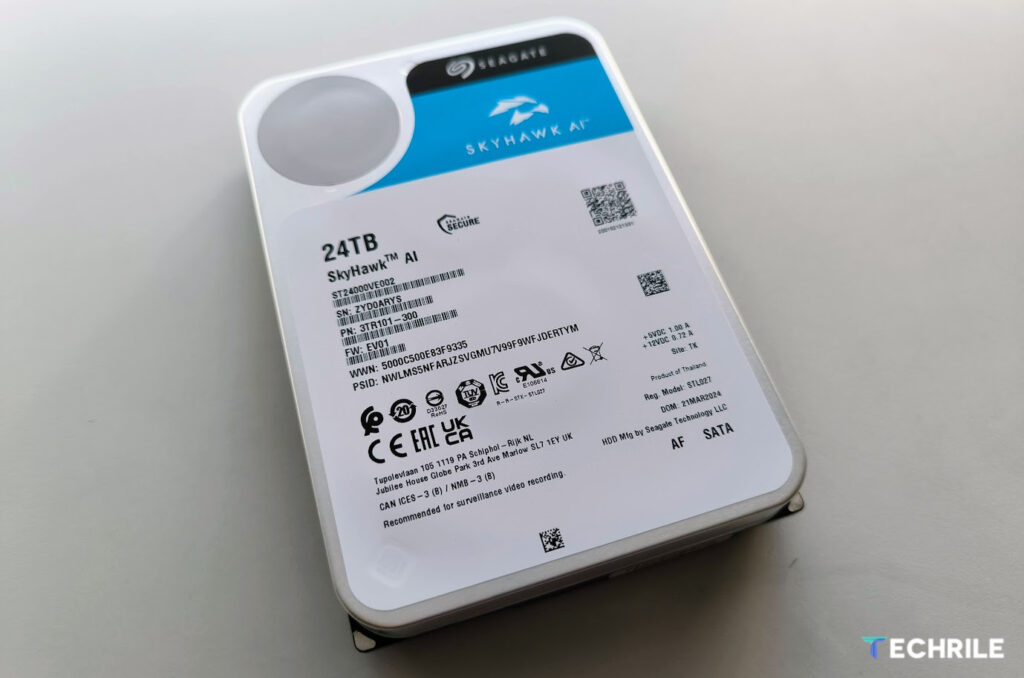
This model promises a reliable operation of 2.5 million hours (MTBF) and supports a data write load of 550 TB/year. This makes it three times more durable than a typical video surveillance hard drive and up to ten times more durable than a regular desktop hard drive. Seagate SkyHawk AI drives come with a five-year warranty, and for three years, they also include the Seagate Rescue Data Recovery Service.
At the time of this , the SkyHawk AI 24 TB model costs around $439.99 . The SkyHawk AI series is available in 8 TB, 10 TB, 12 TB, 16 TB, 20 TB, and now 24 TB models. The 8 TB and 10 TB models are the only ones that are not filled with helium. Additionally, the 8 TB and 10 TB models come only with 256 MB cache, while the 12, 16, and 20 TB models are available with either 256 MB or 512 MB, and the 24 TB version comes exclusively with 512 MB cache. All drives in the SkyHawk AI series operate at 7200 rpm.
Seagate’s Future Technologies
Earlier last year, Seagate confirmed that they would be the first to offer hard drives with 30+ TB capacity built using HAMR (heat-assisted magnetic recording) technology. They also plan to increase the capacity of such drives to 50 TB in the coming years. The company already offers 22 TB and 24 TB hard drives, which are built using PMR (perpendicular magnetic recording) and SMR (shingled magnetic recording) technologies. These 22 TB and 24 TB Seagate Exos series hard drives are primarily used in data centers where a reasonably affordable price and quick availability of storage drives are required.
Five years ago, Seagate introduced platters that could store 3 TB of data, with up to 10 such platters built into each hard drive. Currently, under lab conditions, Seagate can already pack 5 TB of data onto one platter, which will enable the production of hard drives capable of storing 50 TB of data. Seagate expects that these products will hit the market by 2026.
Of course, these capacities are quite specific and are primarily needed by businesses. Just a few years ago, the memory limit for a single hard drive in home users’ NAS devices was 16 TB or even 12 TB, but now it’s closer to 20 TB, while 24 TB is a kind of novelty that not all devices support.
Seagate SkyHawk AI 24 TB Testing
Let’s move on to testing the 24 TB SkyHawk AI. The hard drive will be tested with standard consumer hardware, as there is no possibility of testing with anything else at the moment. In the past, we have tested NAS-specific drives in NAS devices, but unfortunately, that’s not possible this time.
The test setup consists of the following components:
- Motherboard: Gigabyte Z790 AORUS ELITE
- Processor: Intel Core i9-13900K
- CPU Cooler: Fractal Design Celsius+ S36 Dynamic AIO
- Graphics Card: Intel Arc A750
- RAM: G.SKILL Trident Z5 RGB Black DDR5 32GB 5600MHz CL36 Kit of 2
- Storage: Samsung 990 PRO SSD
- Power Supply: Xilence, 1050 W, Performance X, 80+ Gold
In the AS SSD and accompanying tests, the SkyHawk AI 24 TB showed acceptable, but not ideal, performance. We have previously tested NAS-specific drives from other manufacturers in the same way, and they delivered stronger results in the copying tests.
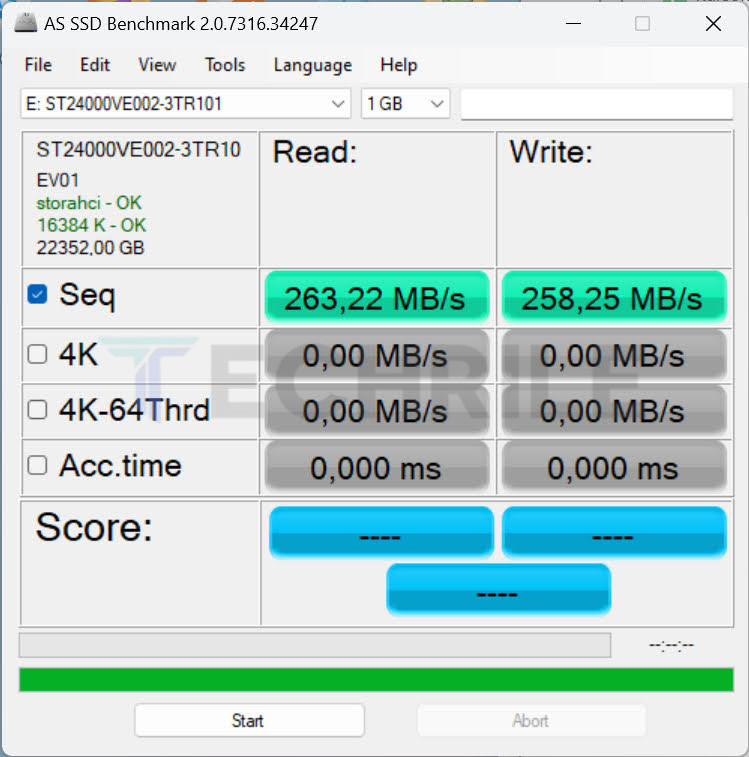
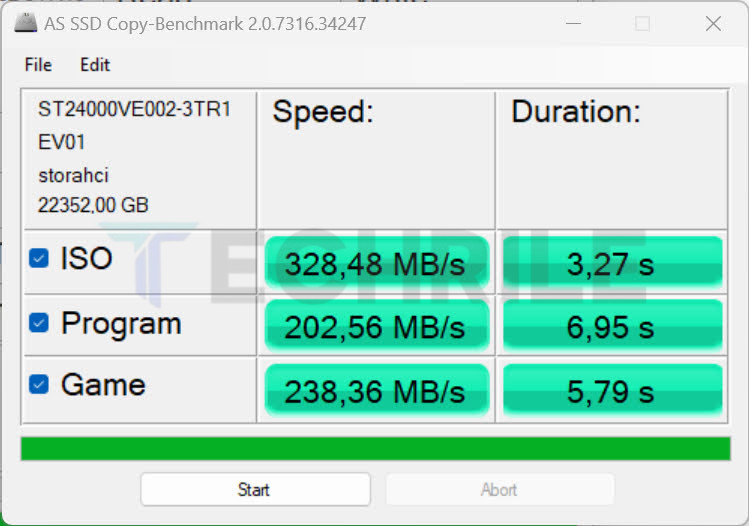
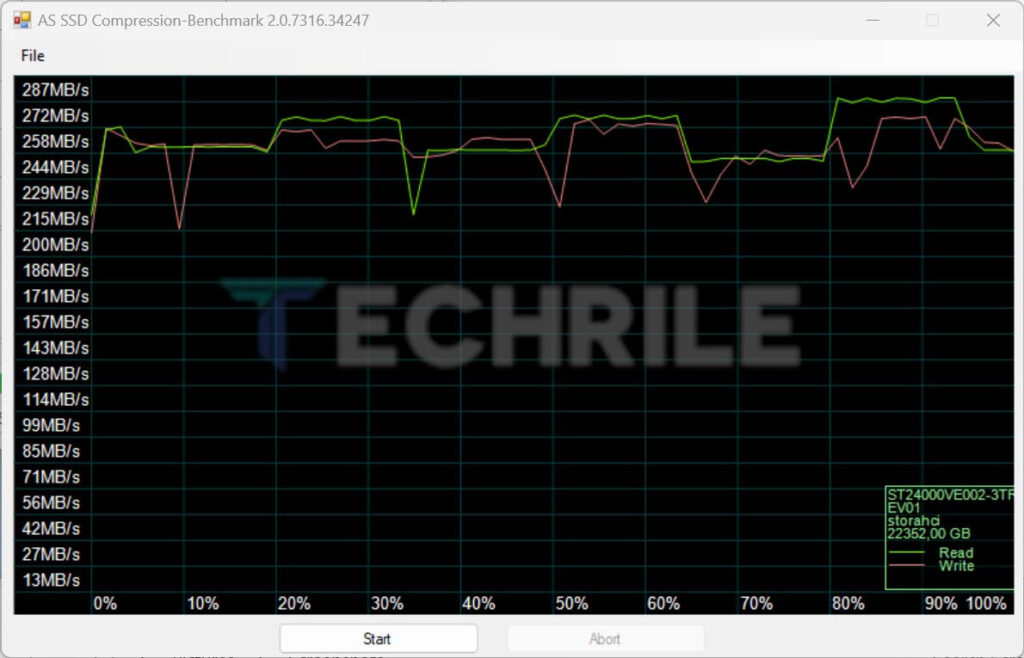
As usual, CrystalDiskMark is the most optimistic of all performance tests. ATTO’s performance test also showed stable results.
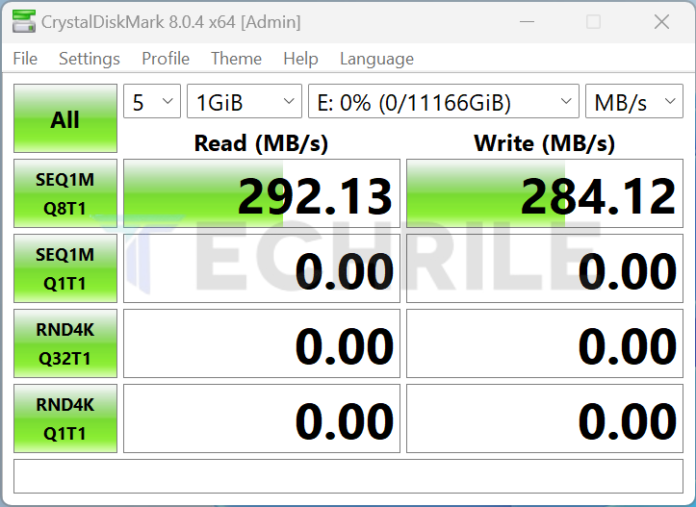
Later, I copied data from a fast NVMe SSD to the 24 TB SkyHawk AI. The data set included several large files, approximately 110 GB in total, split into 25 large files, with a few smaller files in between. During the copy process to the 24 TB SkyHawk AI, the speed stayed consistently around 240–250 MB/s.
Conclusion
In conclusion, hard drive capacities are increasing quite slowly, although future promises are grand. The SkyHawk AI 24 TB is among the top-tier capacities, which could be important for large businesses. Home users will likely look for something more budget-friendly, but the SkyHawk AI series still offers options in the 8 TB, 10 TB, 12 TB, 16 TB, and 20 TB ranges.
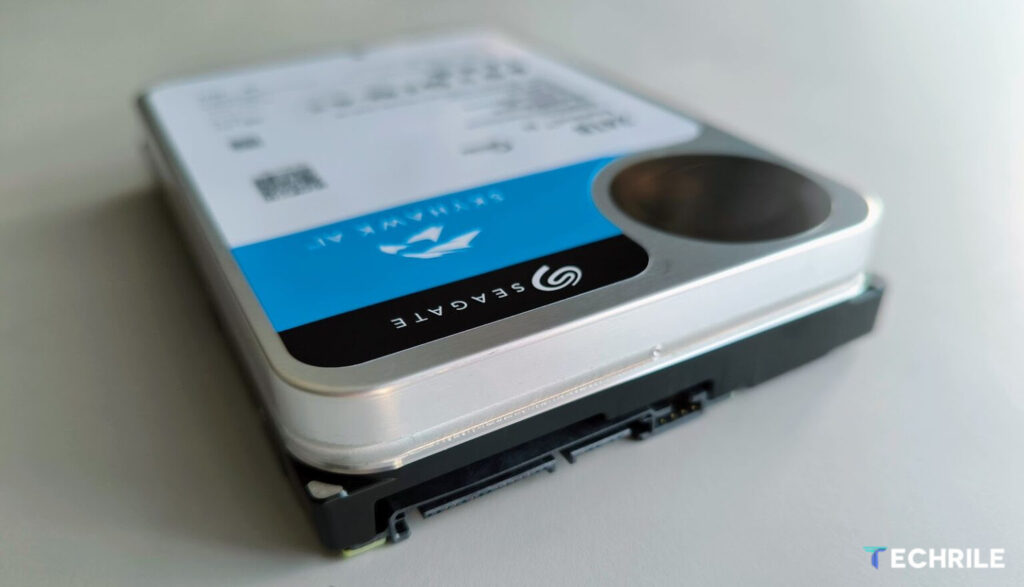
It’s worth checking out the statistics collected by Backblaze, though such large-capacity drives don’t yet appear in their data. Also, it’s unlikely that drives specifically designed for video surveillance would be used for data storage, but Backblaze provides some insight into Seagate’s performance and quality. Last year, Backblaze used a wide range of Seagate hard drive models.

